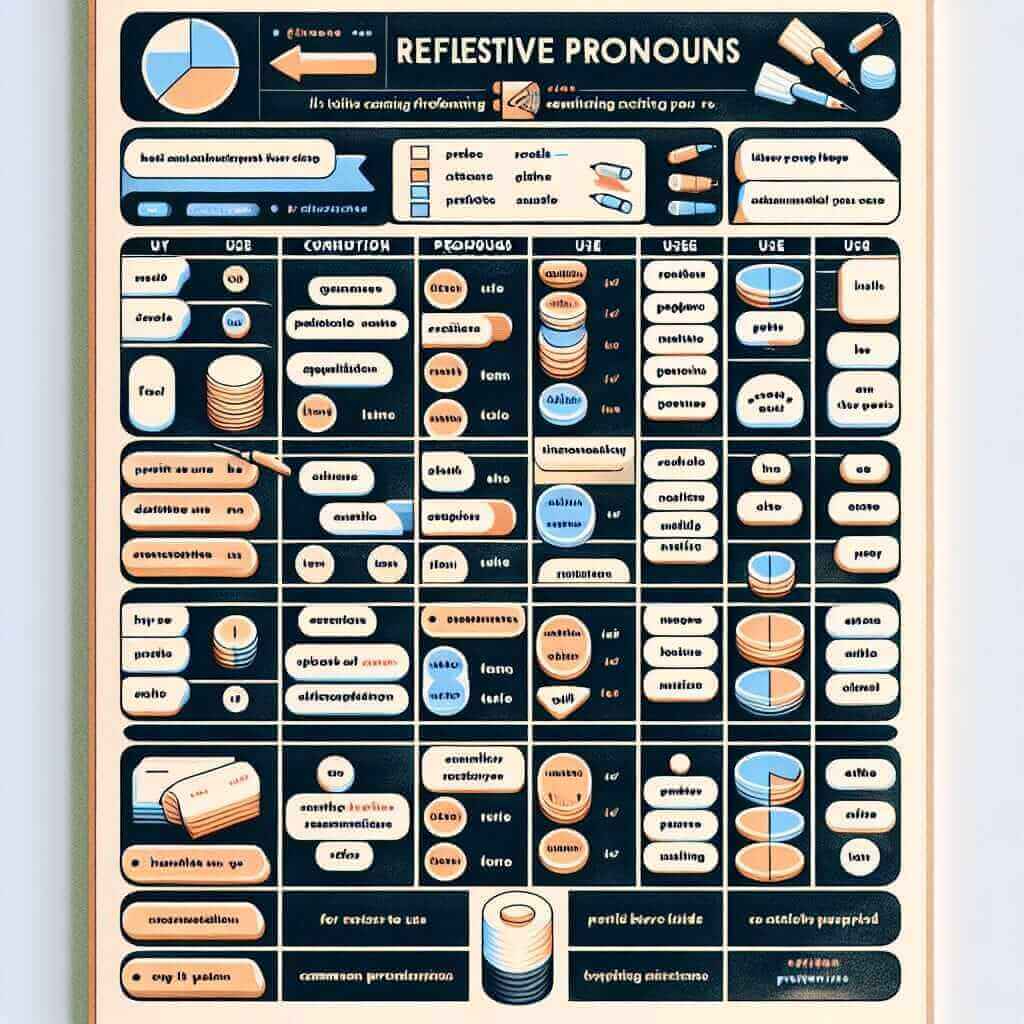Reflexive pronouns often cause confusion for English learners, but mastering them is essential for achieving a high IELTS score. This guide will delve into the intricacies of reflexive pronouns, providing you with the knowledge and skills to use them correctly in your IELTS exam and beyond.
Consider these examples showcasing their diverse applications across various sections of the IELTS:
Speaking Part 2: “When I encounter a challenging situation, I remind myself to stay calm and focus on finding a solution.” (Here, “myself” emphasizes the speaker’s independent action.)
Writing Task 1: “The graph illustrates that the number of students enrolling in online courses has increased significantly, surpassing traditional classroom enrollment for the first time in 2022.” (No reflexive pronoun is needed here because the subject (“number”) does not perform the action on itself.)
Listening Section 2: “The tour guide suggested we take our time exploring the museum and pace ourselves to avoid feeling overwhelmed.” (In this sentence, “ourselves” emphasizes the action of pacing is done by “we” to “we.”)
Let’s explore the rules governing reflexive pronoun usage in detail.
Understanding Reflexive Pronouns
Reflexive pronouns (myself, yourself, himself, herself, itself, ourselves, yourselves, themselves) are used when the subject and the object of a verb are the same. This means that the action is reflected back on the subject.
When to Use Reflexive Pronouns
-
As Objects of a Verb:
- Rule: Use a reflexive pronoun when the subject and object of a verb are the same.
- Example: “She taught herself how to play the piano.” (“She” is the subject and “herself” is the object, both referring to the same person.)
-
For Emphasis:
- Rule: Use a reflexive pronoun to emphasize that the subject is performing the action alone or without help.
- Example: “I built this house myself.” (Emphasizes that the speaker did it without assistance.)
-
With “by” to Mean “Alone”:
- Rule: Use “by” + reflexive pronoun to signify that someone did something alone.
- Example: “He traveled to Europe by himself.” (Means he traveled alone.)
When NOT to Use Reflexive Pronouns
-
As Objects of Prepositions After Prepositions of Place:
- Rule: Do not use a reflexive pronoun after prepositions of place (in, on, at, etc.) unless the verb in the sentence is reflexive.
- Example: “He put the book on the table.” (INCORRECT: He put the book on himself.)
-
With Verbs That Describe Actions People Usually Do to Themselves:
- Rule: Some verbs (wash, dress, shave, etc.) are commonly used without reflexive pronouns.
- Example: “She washed her face.” (NOT: She washed herself her face.)

Mastering Reflexive Pronouns in the IELTS
Writing Task 2:
- Original: “Many people believe that success is determined by hard work. Others think that luck plays a larger role.”
- Improved: “While some argue that success is solely the result of one’s own efforts, others contend that external factors, such as luck, play a significant role in shaping one’s destiny.” (By avoiding a simplistic structure and incorporating more sophisticated vocabulary, you demonstrate greater language proficiency.)
Speaking Part 3:
- Examiner: “Do you think it’s important for children to learn how to do things for themselves?”
- Candidate: “Absolutely. When children learn to dress themselves or tie their own shoes, it fosters a sense of independence and self-reliance, which are essential qualities for success later in life.” (Using “themselves” correctly and providing a well-developed response with relevant vocabulary can contribute to a higher score.)
Common Mistakes and How to Avoid Them
-
Incorrect: “I looked at myself in the mirror.”
-
Correct: “I looked at myself in the mirror.” (You look at your reflection, not at your physical self.)
-
Incorrect: “He enjoyed himself at the party.”
-
Correct: “He enjoyed the party.” (The verb “enjoy” does not require a reflexive pronoun in this context.)
Conclusion
Mastering reflexive pronouns is a significant step toward achieving your desired IELTS score. By understanding the rules and nuances of their usage, you can communicate your ideas with greater clarity, precision, and sophistication. Remember to practice applying these concepts in various contexts to build your confidence and fluency. Good luck!